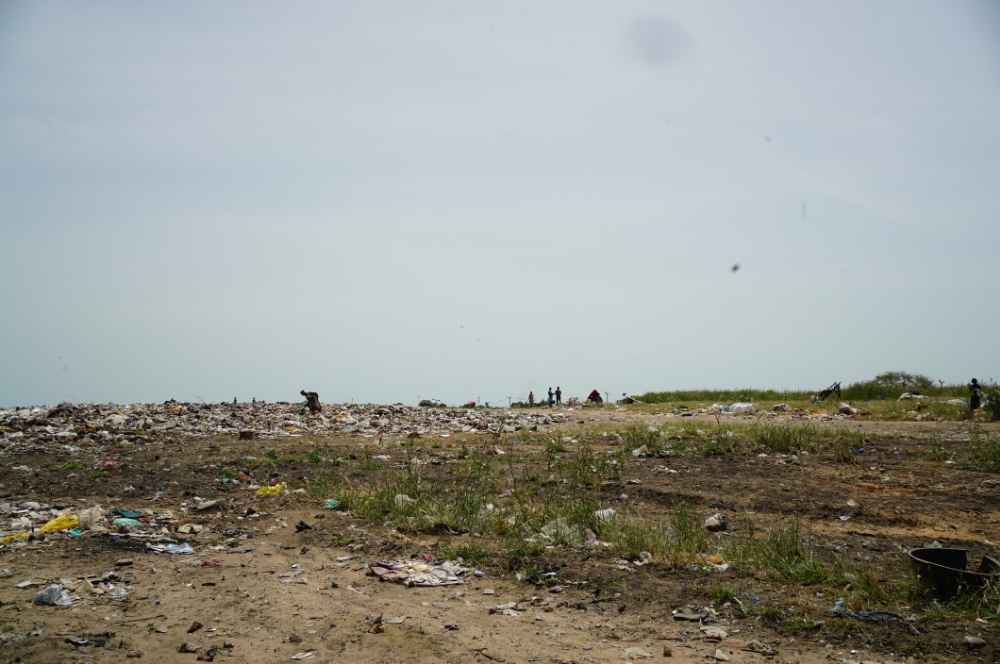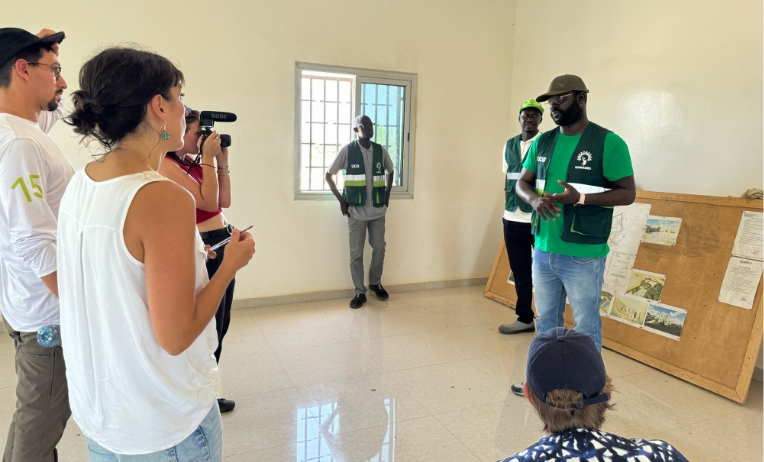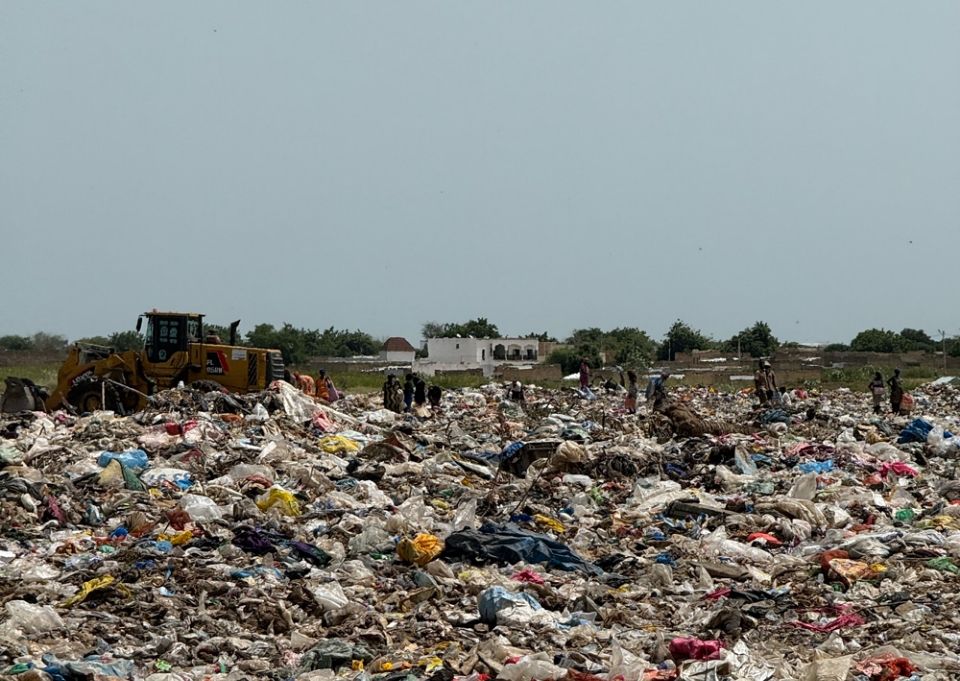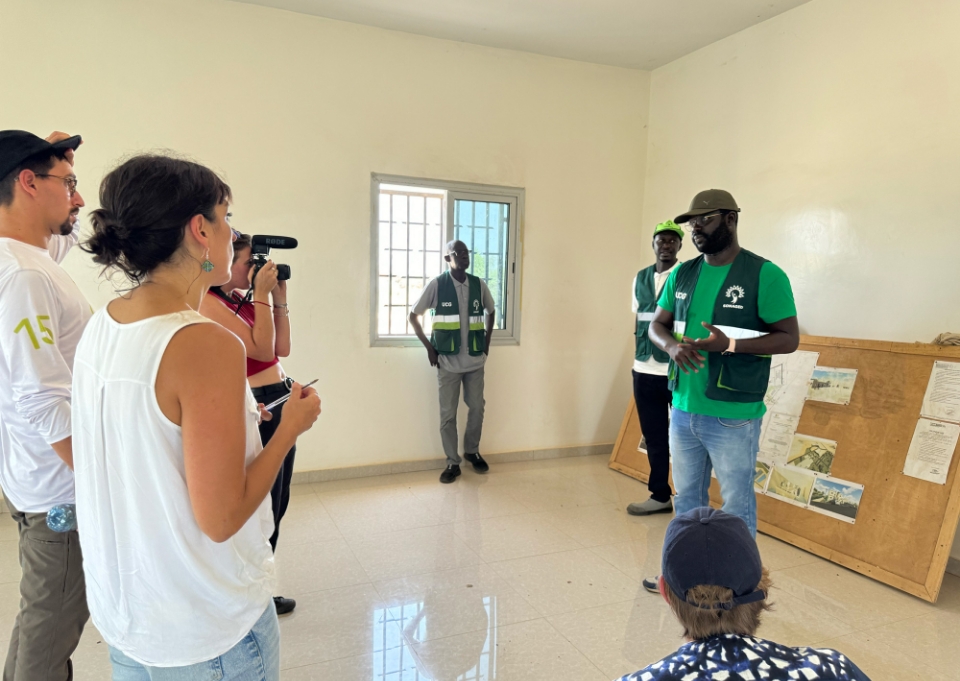dMRV Systems – Senegal, Touba
Context
One of the most pressing environmental challenges is the dramatic surge in waste production expected by 2050. This alarming increase is predicted to cause significant biodiversity loss, exacerbate climate change, and result in deadly pollution, incurring hundreds of billions of dollars in damages. Against this backdrop, ALLCOT and ALLCOT IO present our successful waste management pilot project with SONAGED in the city of Touba as a testament to the potential of carbon finance to make a tangible difference.
The project addresses the lack of sustainable waste management in Senegal, which negatively impacts the economy. By recovering organic waste through composting, Senegal aims to achieve a relative reduction in greenhouse gas emissions of 11% by 2030, with a potential increase to 65.28% for the conditional target. The Touba Peykouk landfill, which received 110,172 tons of waste in 2020, contributes to environmental degradation and GHG emissions.
The program is designed to:
- Contribute to the achievement of the target countries’ NDCs.
- Facilitate participation in carbon market mechanisms, enhancing the market’s approach in line with the Paris Agreement.
- Generate High Integrity and Auditable Carbon units by leveraging Digital Ledger Capabilities

The Solution
The program involved constructing a composting facility in Touba, Senegal, aimed at treating organic solid waste. The facility will produce compost for various permaculture initiatives in the region. Key technical parameters include a reduction of 10,413 tons of CO2 equivalent annually over 15 years, processing 37,560 tons of organic waste into compost per year, with a full capacity of 120 tons per day. Additionally, we developed a capacity-building awareness and training program focused on plastic recycling, composting, and equipment operation, emphasizing sustainability, knowledge transfer, empowerment, job creation, cultural sensitivity, and risk mitigation.
As ALLCOT IO, we participated by establishing Digital Measurement, Reporting, and Verification (dMRV) systems to ensure transparency and certify the quality of emission reductions.
Process
- Development of MRV Digital Platform:
• Design and deploy software and sensors/IoT for accurate measurement and reporting of operation and emissions
• Train local personnel in the operation and maintenance of MRV systems - Stakeholder Engagement and Reporting:
• Create a platform for stakeholders to access emission data
• Regularly publish verified reports on emission reductions and waste management performance - Data Management and Quality Control:
• Establish protocols for data collection and analysis
• Perform regular audits to ensure the accuracy of emission data - Alignment with Carbon Standards dMRV requirements:
• Compliance with streamlined project reporting to validate quarterly carbon credit issuance
• Alignment with Green Accounting best practices to validate financial transparency and compliance

The Impact
Environmental Impact: reduction of environmental degradation, odors, pollution and GHG (methane) emissions currently caused by the anaerobic degradation of municipal organic solid waste at the Touba landfill. Collection of plastic waste that would otherwise end up in water sources and rivers.
Social Impact: improvement of public health and increase of agricultural production through the use of organic compost, generating more income to help improve the quality of life of communities.
Economic Impact: using compost as an alternative to chemical fertilizers to improve soils for agricultural production in the region. Collection and sale of plastic waste, providing the community with an additional source of profit

Before
The region faced mounting challenges due to inefficient waste management practices, leading to environmental degradation and public health risks. Limited resources and infrastructure compounded the problem, exacerbating pollution and greenhouse gas emissions.

After
Integrated waste management systems were established, reducing emissions, enhancing local capabilities, and aligning with climate goals. Community engagement initiatives fostered a culture of waste reduction, resulting in improved environmental quality and economic opportunities.
